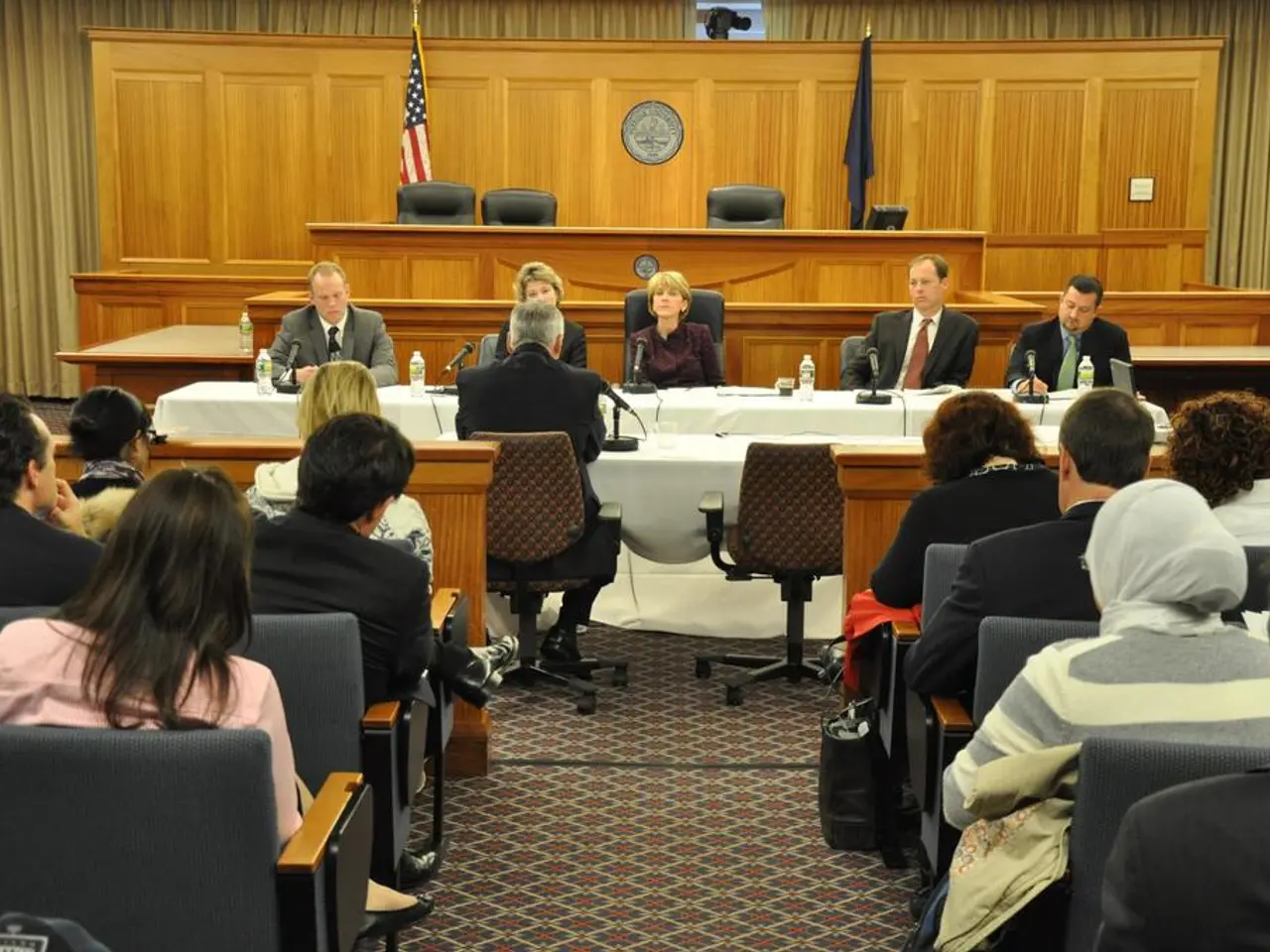On Monday, the People's Party will reconsider their options.
The People's Party, with 143 seats, finds itself in a pivotal position following the dismissal of Paetongtarn Shinawatra from the prime minister's post by the Constitutional Court. As the largest opposition party, the People's Party is courted by both the Pheu Thai and Bhumjaithai parties for their respective prime ministerial candidates, Chaikasem Nitisiri and Anutin Charnvirakul.
The Kla Tham party, with 25 MPs and support from four MPs in small parties, has officially announced its support for Anutin Charnvirakul to become Thailand's 32nd prime minister. The Kla Tham party, mostly comprised of defectors from the pro-junta Palang Pracharath Party, has also called for policies that prioritise the welfare of Thailand's 30 million farmers, advocating for protection against corporate interests that may threaten agricultural livelihoods.
The Kla Tham party emphasises the urgency of restoring executive leadership to address pressing national issues, including international tensions, economic instability, and social challenges. Thamanat Prompow, the main decision-maker in the Kla Tham party, has been instrumental in negotiations, leading the exodus from Palang Pracharath.
Meanwhile, the People's Party has stated that it would support the formation of a new government on condition that the House is dissolved by the end of this year and a referendum on the drafting of a new constitution is held alongside elections. Thanathorn Juangroongruangkit, leader of the People's Party, has conveyed these conditions to Thaksin Shinawatra, the de facto leader of Pheu Thai, during a meeting in Hong Kong.
However, it seems that no party can currently form a majority government, as negotiations between the Pheu Thai and People's parties have been complicated. The People's Party has stated that they have received no formal contact from the Pheu Thai party for discussions, and Thanathorn has emphasised that his relationship with Thaksin's allies does not influence his thinking regarding the current political situation.
The acting prime minister, Phumtham Wechayachai, believes the People's Party is likely to consider all coalition options before making a decision. He also believes negotiations with Pheu Thai would be easier than with Bhumjaithai, considering prior cooperation on constitutional and referendum issues.
As the political landscape in Thailand continues to evolve, the role of the People's Party as a potential kingmaker becomes increasingly significant. The party has made it clear that it will use parliamentary mechanisms, including no-confidence motions, to hold any new government accountable for abuse of power, corruption, or interference in the judiciary. The upcoming negotiations promise to be crucial in shaping Thailand's political future.
Read also:
- ICE directed to enhance detention conditions following NYC immigrants' allegations of maltreatment
- Israeli finance minister issues warnings about potential annexation of West Bank territories
- United States faces rebuttal from South Africa over allegedly deceitful human rights report and assertions of land expropriation
- Accident at Rodalben Results in Injuries; Geoskop Area near Kusel Affected After Stormy Weather








